Rock climbing and the beginner’s mind
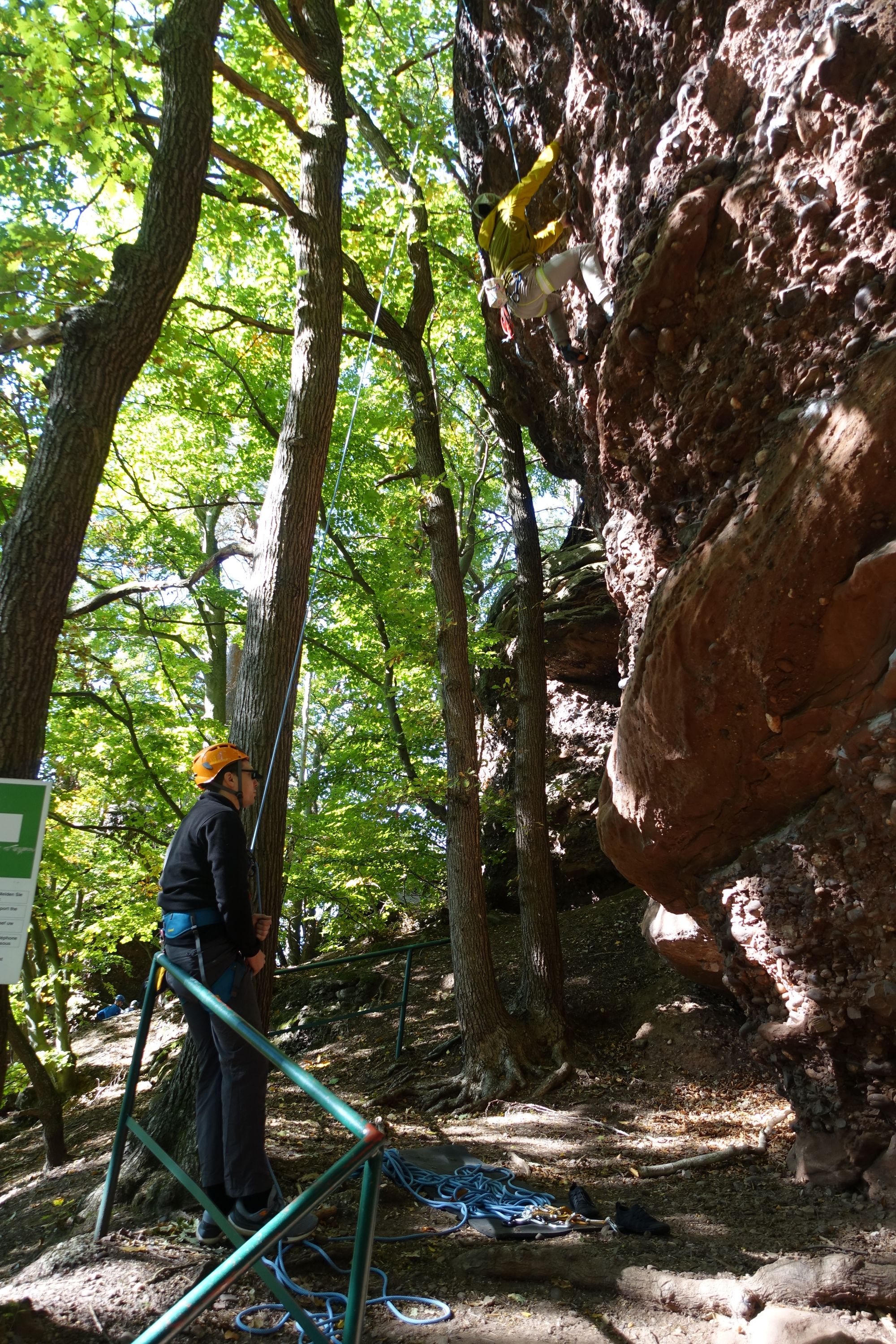
There are many things I like about climbing, whether it's in an indoor climbing hall or outdoors. When I arrive at a route that others rated at the upper limit of what I climbed in the past, I feel uncertainty rising. This uncertainty means I have to give everything to have a chance. It's an invite. There is the experience of struggling on a hard part and pushing through; there is me being aware of my fear of falling but still calm. There is spending time together experiencing all of the above.
And there are some things that make climbing outdoors special. Last Sunday I went rock climbing in Nideggen with two friends. We spent the whole day under the blue sky. The air was cooler in the shadows and warmer in the sun. We had tea and snacks at the top of one of the routes in between treetops.
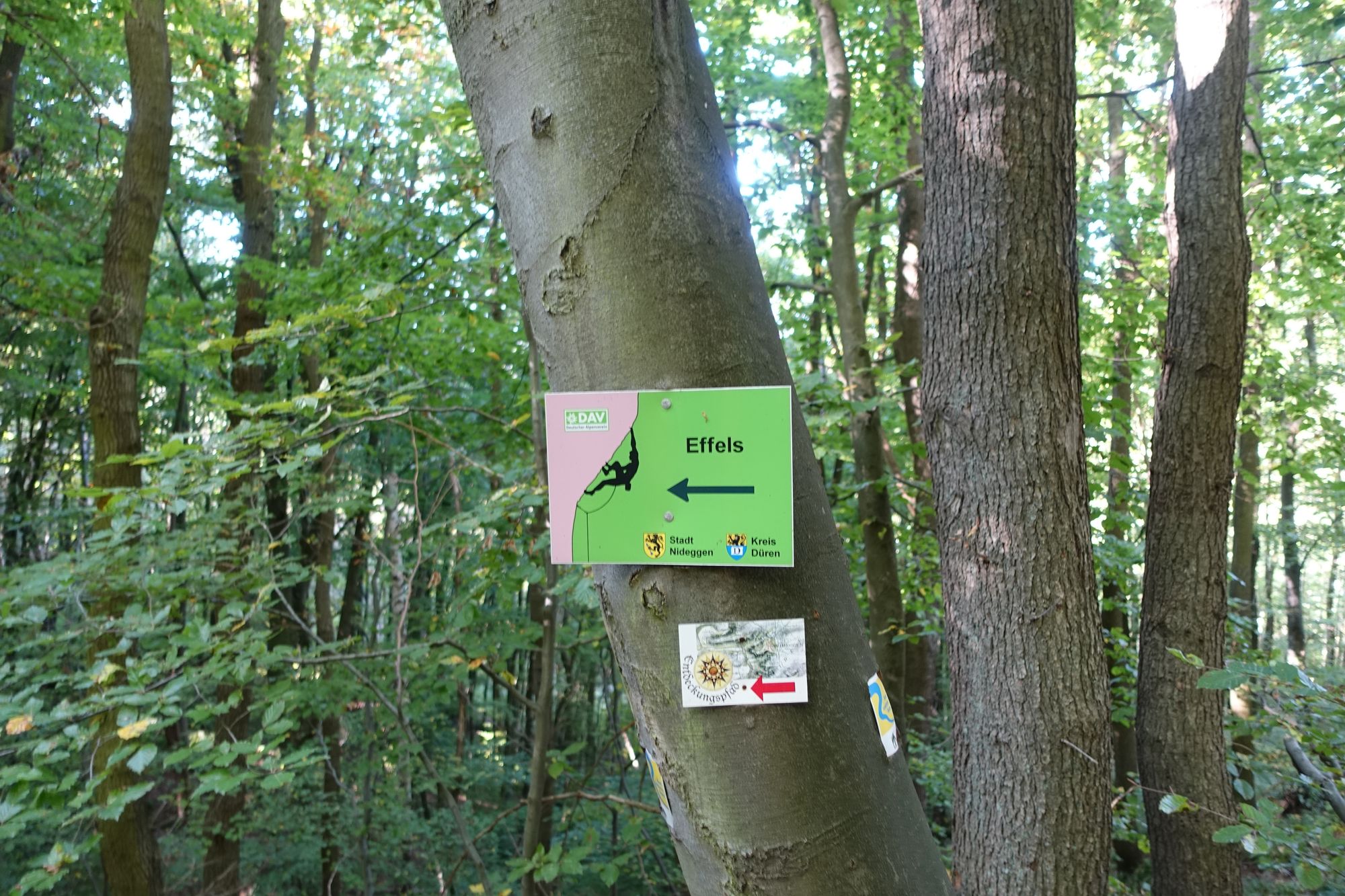
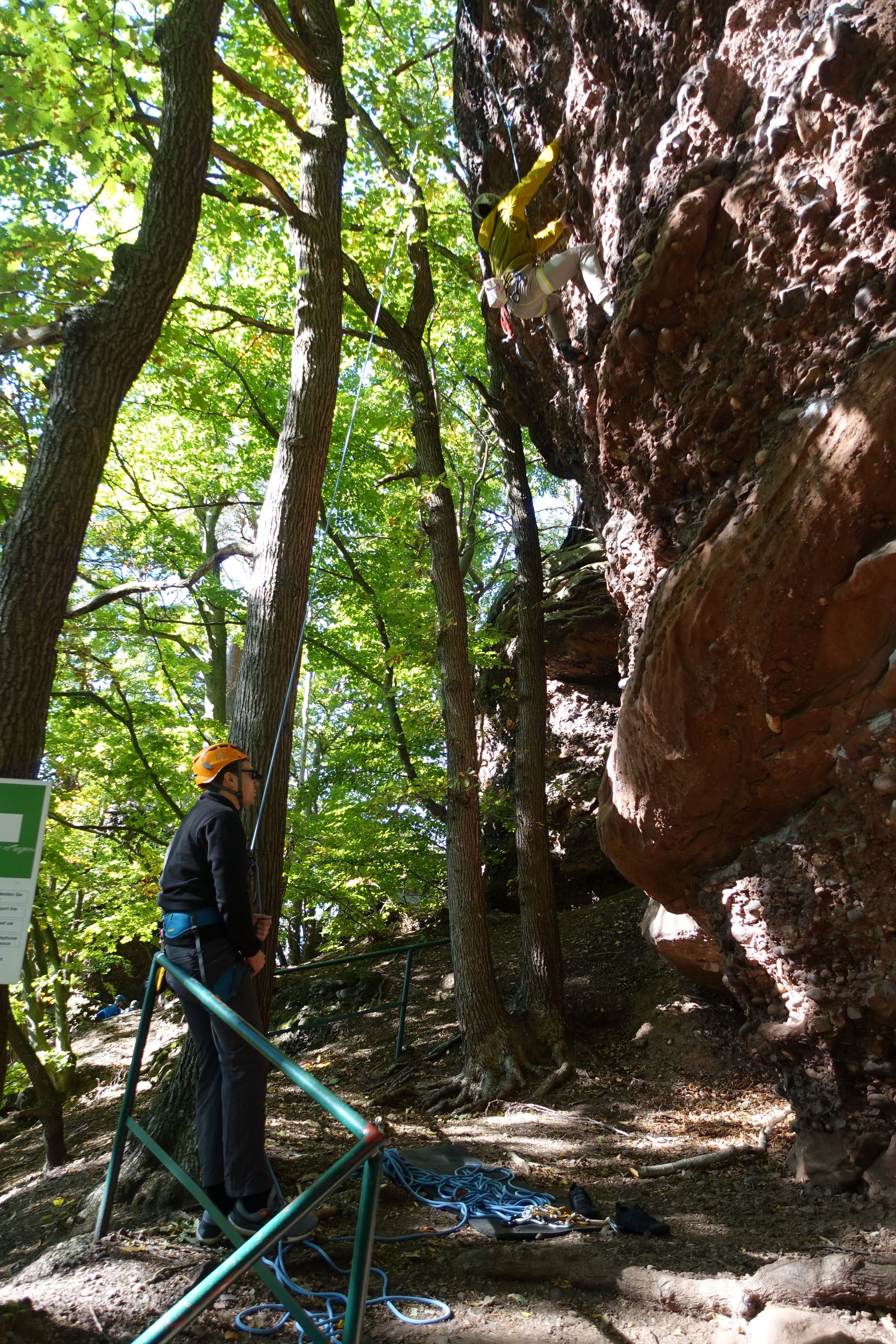
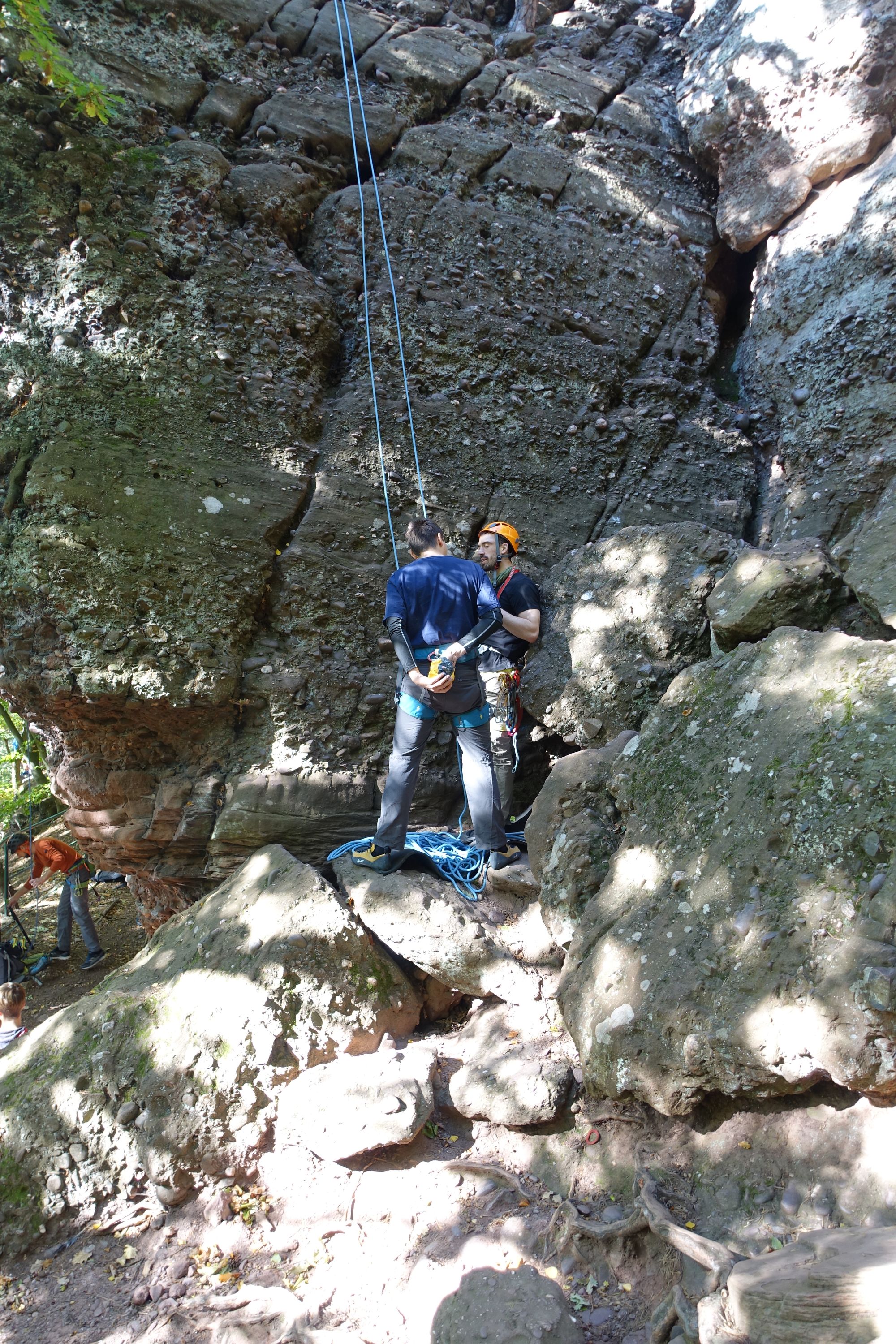
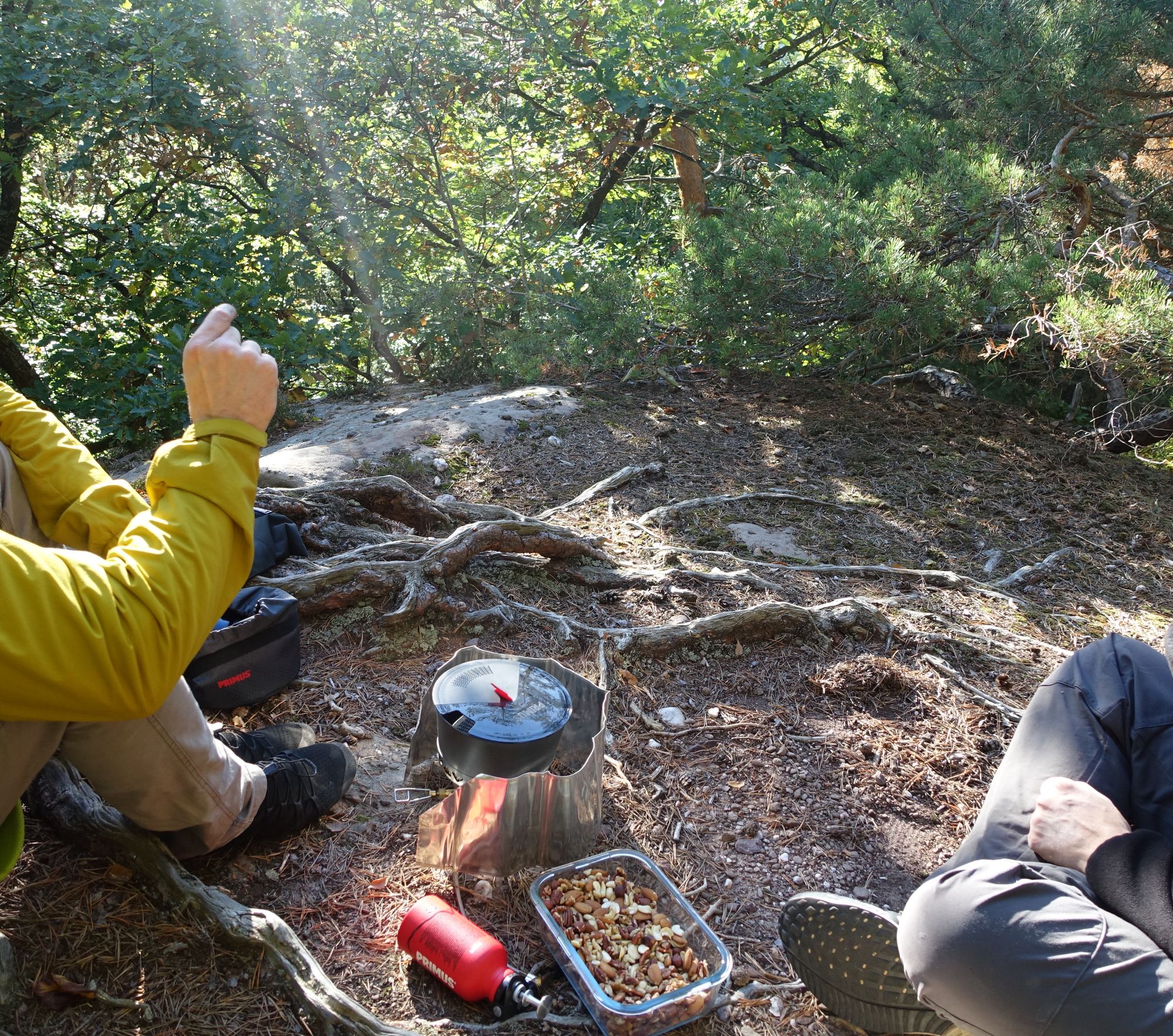
Climbing outdoors forces me to really look at the rock and touch it—explore all its edges, cracks, the texture—to find out what might work. Where colored holds in the climbing hall allow me to power through routes, I have to be much more aware and careful on the rock. It guides me to stay in beginner’s mind.
Book review "Never Split the Difference"
I recently finished reading "Never Split the Difference: Negotiating as if Your Life Depended on It". It's a book about negotiating written by someone who handled hostage negotiations in his career. The book starts out with lots of tactics—labeling, accusation audit, and others (go and read the book if you are interested in specific tactics, it does a good job there in my opinion). I took extensive notes in that part.
However, the true gold for me came after concrete tactics. There was a part about investigating the beliefs I hold about negotiating. I found out that I had some negative beliefs, especially about my negotiation skills and the value of negotiation. Following the arguments and stories outlined in the book, I came to accept that negotiating can be learned and that negotiating is just part of life. What a relief! The other very cool bit of the book is the last chapter, called "Find the Black Swan". A black swan is a piece of information about the other side that has the power to change everything. According to the author, there are at least three black swans in every negotiation that you should strive to uncover. If a piece of information is known or at least a "known unknown" when the negotiation starts, it does not have the power a black swan has. So effectively the chapter is about uncovering "unknown unknowns" by retaining a beginner’s mind.
